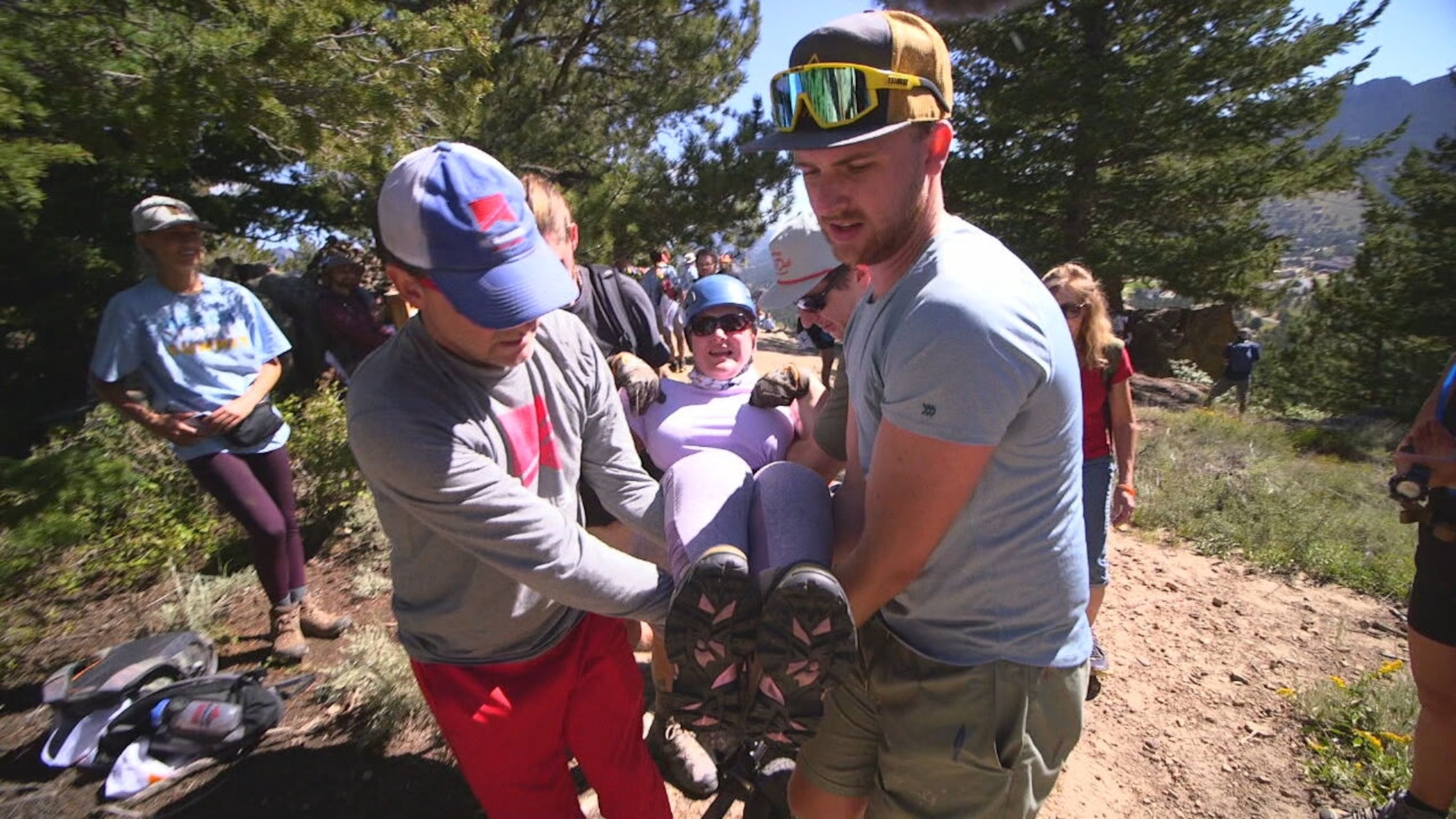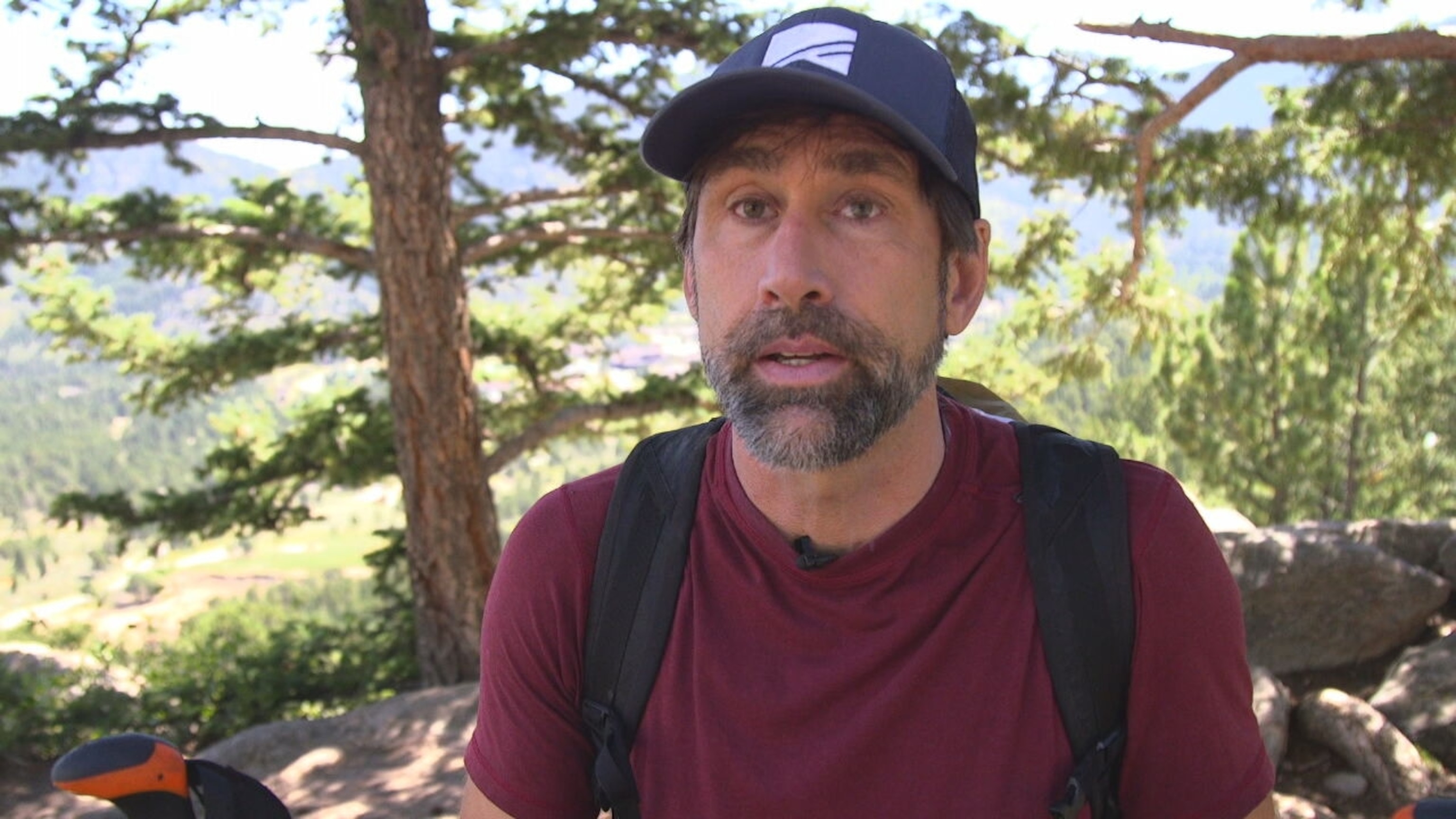Woman with cerebral palsy conquers stereotypes by climbing Rocky Mountains
"I can do things, but I do them differently than other people," she said.
A woman with cerebral palsy accomplished the most ambitious climb of her life in the Rocky Mountains with the help of a nonprofit.
Melissa Simpson, 31, has faced physical challenges her entire life as she was born with cerebral palsy, weighing less than 2 pounds. She spent her first two months of life on a ventilator and has always used a wheelchair. Her disability made her an easy target, she said.
"I got bullied, I got pushed around. And people would laugh and make fun of me," Simpson told ABC News.

From her window, she could see some of the tallest peaks in Colorado. Climbing them was her dream, but it was always just out of reach — until recently, thanks to the help of a nonprofit called No Barriers.
The organization, which empowers people with physical and mental difficulties to achieve their goals, recently organized a hike in the Rocky Mountains for about 400 people of all abilities.
Simpson used a specially designed chair with hand levers to propel the wheels forward alongside a volunteer team pulling her with ropes. She first began climbing before the pandemic with the help of No Barriers, but this climb was the most challenging of her life, covering the steepest incline over the shortest distance.
"I don't let me disabilities stop me. Sometimes I might be like, 'Oh man, I can't get through this. But I've got to change that mindset,'" Simpson said.
Erik Weihenmayer is a veteran at breaking barriers. In 2001, he became the first blind person to reach the top of Mount Everest. It was overcoming those challenges as a disabled mountaineer that led him to co-found No Barriers.
"We get into our corners, as folks with disabilities, and we kind of create these expanses around us, and we become a bit isolated," Weihenmayer told ABC News.

After losing his sight to a childhood condition, Weihenmayer was completely blind by the age of 14.
"I remember sitting in the cafeteria after going blind, my freshman year in high school, sitting at a table by myself and listening to all the food fights and jokes and fun over there with all my friends. I was scared to go blind, but my greatest fear was that I was going to be left out of everything," he said.
Now, he advocates for inclusion and acceptance.
"Today, hiking with us up the mountain, you'll see every disability under the sun, from folks with cerebral palsy, to folks in wheelchairs cranking their way up the mountain with their arms, to injured veterans, to kids in the foster care system. So it's this really eclectic community of people, and we ask them to lean in and lift each other up," Weihenmayer said.
Simpson's journey to reaching the peaks outside her window began when she defied a teacher who once told her she "wouldn't get anywhere in this world" by graduating college with an associate's degree in 2017. Weihenmayer was the commencement speaker and that is how they met.
"That was the flip of a switch for me. My life turned around," Simpson said.
Reaching the peak with No Barriers was an emotional moment for Simpson, who broke down in tears as volunteers carried her to a perch on a rock.
"I don't think of my disability, and I don't particularly care for people to define as a disabled person. I can do things, but I do them differently than other people," Simpson said.




